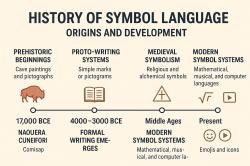Who were the first lawyers in history?
The concept of lawyers and legal practitioners has deep historical roots, and the role of legal professionals has evolved over time. It's important to note that the early legal systems varied across different cultures and regions, and the idea of a lawyer in the contemporary sense may not perfectly align with historical roles. Here are some early legal practitioners from different civilizations:
Ancient Mesopotamia (c. 2100–539 BCE):
In Mesopotamia, one of the earliest known legal codes is the Code of Ur-Nammu (circa 2100–2050 BCE) and later the more famous Code of Hammurabi (circa 1754 BCE). These early legal codes had provisions for resolving disputes, and individuals known as "judges" or "rulers" played a role in interpreting and applying the laws.
Ancient Greece (c. 800–146 BCE):
In ancient Greece, legal matters were often handled by citizens who acted as advocates for themselves or others in court. However, by the 4th century BCE, there were individuals known as "logographoi" who specialized in drafting legal speeches for litigants. These specialists were not advocates in the modern sense but played a role in preparing legal arguments.
Ancient Rome (c. 753 BCE–476 CE):
In ancient Rome, legal practitioners known as "advocates" emerged. Advocates were skilled orators who represented individuals in legal proceedings. The Roman legal system also had "jurisconsults" or legal scholars who provided legal opinions and advice. The distinction between advocates and jurisconsults was not always clear-cut.
Islamic Golden Age (8th–14th centuries):
During the Islamic Golden Age, Islamic scholars known as "qadis" served as judges, applying Islamic law or Sharia. Legal scholars, including those in the Maliki, Hanafi, Shafi'i, and Hanbali schools of thought, played a significant role in interpreting and developing Islamic jurisprudence. While not equivalent to modern lawyers, these figures had important legal functions.
Medieval England (11th–15th centuries):
In medieval England, the legal profession began to take a more recognizable form with the emergence of "serjeants-at-law" and "barristers." Serjeants-at-law were legal professionals recognized for their expertise and were akin to modern-day barristers. They wore distinctive robes and played a role in the medieval English legal system.
Conclusion:
The concept of lawyers and legal practitioners has evolved over millennia, with different civilizations contributing to the development of legal systems and the roles of those who interpret and apply the law. The modern legal profession, with its distinct roles of attorneys, advocates, and judges, has its roots in this rich historical tapestry.
Who were among the earliest individuals practicing law in history?
Identifying the earliest individuals practicing law in history is a challenging task due to the limited historical records and the evolving nature of legal systems across different civilizations. However, some prominent figures from ancient societies are often recognized as early pioneers of law and legal practice:
Ancient Egypt:
- Imhotep (c. 2600 BC): A renowned architect, physician, and vizier during the Third Dynasty of Egypt. He is credited with writing the "Instructions of Imhotep," a collection of moral and ethical teachings considered one of the earliest surviving legal texts.
- Ptahhotep (c. 2350 BC): Another vizier and high official during the Fifth Dynasty. His "Maxims of Ptahhotep" offer guidance on legal and social matters, providing valuable insights into ancient Egyptian legal practices.
Mesopotamia:
- Lipit-Ishtar (c. 1934-1924 BC): The fifth king of the Isin Dynasty of Sumer, known for enacting the "Code of Lipit-Ishtar," one of the earliest codified legal systems in history. This code addressed various legal issues, including property ownership, contracts, and family law.
- Hammurabi (c. 1792-1750 BC): The sixth king of Babylon, famous for the "Code of Hammurabi," a comprehensive legal code encompassing civil, criminal, and procedural laws. This code served as a model for legal systems in subsequent civilizations.
Ancient Greece:
- Draco (c. 7th century BC): An Athenian lawgiver known for enacting the Draconian Law Code, a notoriously harsh set of laws that aimed to deter crime through severe punishments.
- Solon (c. 638-558 BC): Another Athenian lawgiver who reformed the Draconian laws and introduced a more democratic and equitable legal system. His reforms served as the foundation for Athenian democracy and influenced legal systems throughout the Greek world.
Ancient Rome:
- Gaius (c. 120-180 AD): A prominent Roman jurist and legal scholar. His writings, including the Institutes, are considered fundamental texts in Roman law and have had a profound influence on legal systems around the world.
- Papinian (c. 142-212 AD): Another renowned Roman jurist whose legal opinions and writings were considered highly authoritative and were later incorporated into the Corpus Juris Civilis, the Justinian Code.
It's important to note that these individuals represent just a small fraction of the legal practitioners who contributed to the development of law throughout history. Many other individuals from various cultures and civilizations played vital roles in shaping legal systems and legal practice as we know it today.













